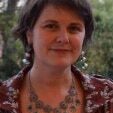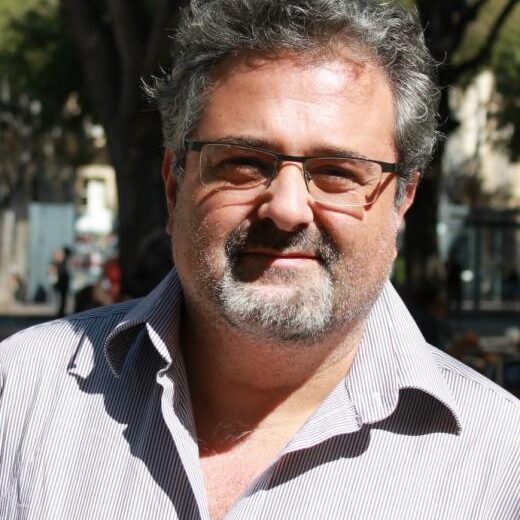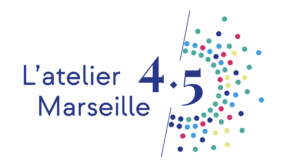Urban studies" cross-cutting theme
Spatialised social groups, local institutions and urban policies

Coordinated by
Claire Bénit-Gbaffou & Cesare Mattina
The aim of the 'Urban Studies' cross-disciplinary theme is to bring together MESOPOLHIS researchers who, either centrally or incidentally, are developing research on the city or on urban subjects. The multidisciplinary identity of the laboratory (which brings together sociologists, political scientists, historians, urban planners, geographers and demographers), the roots of different traditions of local and political studies (among political scientists, the localised analysis of politics; among sociologists, the analysis of urban social dynamics, and the heritage of a collective workshop in Marseille), have led us to propose this space where disciplinary approaches to the city and the question of power can be brought together.

The core of the analysis in this area, and what makes it original among national research laboratories working on urban issues, is that it combines three approaches to analysing the question of power in the city, within the city and over the city:
- The analysis of social groups, their distribution and spatial anchorage, their alliances, rubbing shoulders and rivalries in the urban space;
- Analysis of political, partisan or institutional battles to govern the city: players, issues, sites and objects
- Analysis of the policies implemented in urban areas by public institutions at different scales: their genealogy, instruments and spatial effects.
These approaches are often disjointed, or associated only in pairs, because of their dominant disciplinary roots (sociology, geography and urban anthropology for the first, political science for the second, urban planning for the third). A fruitful dialogue within the laboratory, at the University of Aix Marseille and beyond, has begun to take shape through various initiatives that take the city as the object of research, sometimes supported by educational projects, and attempt to hold these three dimensions together.
Cet axe transversal s’adosse principalement aux axes 4 « Dynamiques socio-spatiales et mobilisations politiques » et 6 « Normes, déviances, savoirs de gouvernement » du laboratoire. Il est structuré en plusieurs initiatives, de nature et de temporalités diverses, et est ouvert aux propositions des collègues qui souhaitent s’y inscrire.
1 - L’ Atelier de Lecture « Gouverner la ville »
L’ Atelier de Lecture « Gouverner la ville » propose des débats autour de lectures approfondies, collectives et régulières sur des corpus de textes autour de thématiques choisies chaque année.
2025-2026. Activisme institutionnel et fabrique de la Ville
Voir présentation du thème et programme des séances
Coordination : Claire Bénit et Alice Daquin
2021-2022. Qui gouverne la ville ? Les community power studies aux Etats Unis et ailleurs
Voir présentation du thème et comptes-rendus des séances
2 - Les Ateliers Urbains
Les Ateliers Urbains organisent la pratique de recherche de terrain en commun, sur un espace et un thème choisi pour une période de trois ans, en interaction avec les acteurs du territoire. Initiatives pédagogiques et de recherche appliquées, ils impliquent les étudiants de différentes disciplines et des formes variées de restitution au débat public.
2022-2026. Une première édition de ces ateliers urbains a été orgagnisée sous le nom « Atelier Marseille 4-5 », dans les 4e et 5e arrondissements de Marseille, en dialogue avec la mairie de secteur, sur le thème « Fabrique de l’action publique locale en milieu urbain ». Après trois années de terrain (2023-2025), nous consacrons cette année (2026) à la consolidation scientifique des résultats de l’enquête.
Coordination 2025-2026 : Claire Bénit, Cesare Mattina et Mathilde Jourdam Boutin
3 - Le Séminaire permanent de « Marseillologie »
Le Séminaire permanent de « Marseillologie » ouvre un lieu de réflexion, d’échange et de partage de travaux de sciences sociales en cours et à venir sur Marseille et sa métropole. À travers l’organisation de journées d’études thématiques, centrées sur la mise en perspective et en comparaison des terrains urbains marseillais avec d’autres terrains urbains en France et à l‘étranger, il s’agit de consolider un collectif de chercheurs (et de jeunes chercheurs) dont les recherches multidisciplinaires, ancrées dans l’espace marseillais, interrogent la spécificité et la banalité de cette ville.
Voir le programme des séminaires 2025-2026 (à venir)
Coordination 2025-2026 : Dennis Rodgers et Mathilde Jourdam-Boutin
Les coordinateurs de l’axe Études Urbaines « Gouverner la ville »


Claire Bénit-Gbaffou est géographe-urbaniste au MESOPOLHIS (AMU-CNRS-Sciences Po Aix) et à Aix-Marseille Université.
She is interested in institutional activism and urban change, drawing inspiration from (North American) work on urban politics, the (North American and Brazilian) political sociology of institutional activism, and (French and European) work on municipalism. She has worked on the government of informal trade, and then of parks and gardens, in Johannesburg, and has recently turned her attention to the government of urban parks and public spaces in Marseille.
Cesare Mattina est sociologue au MESOPOLHIS (AMU-CNRS-Sciences Po Aix) et à Aix-Marseille Université.
His research focuses on city government. He works both on large cities, based on his research into the influence of clientelist phenomena on the hierarchisation of social groups (Marseille), and on smaller towns and cities with low population density and an industrial presence (heavy chemicals and civil nuclear power in France and Italy).
